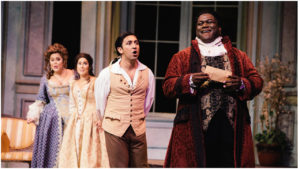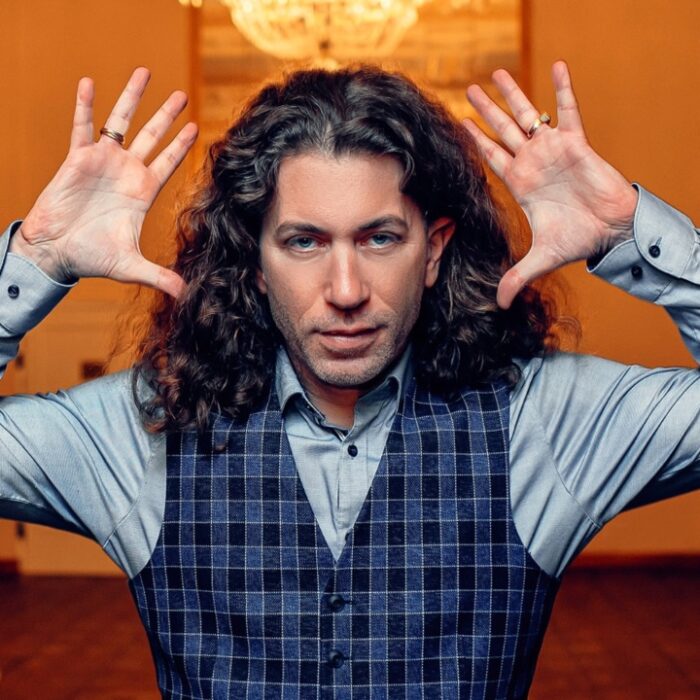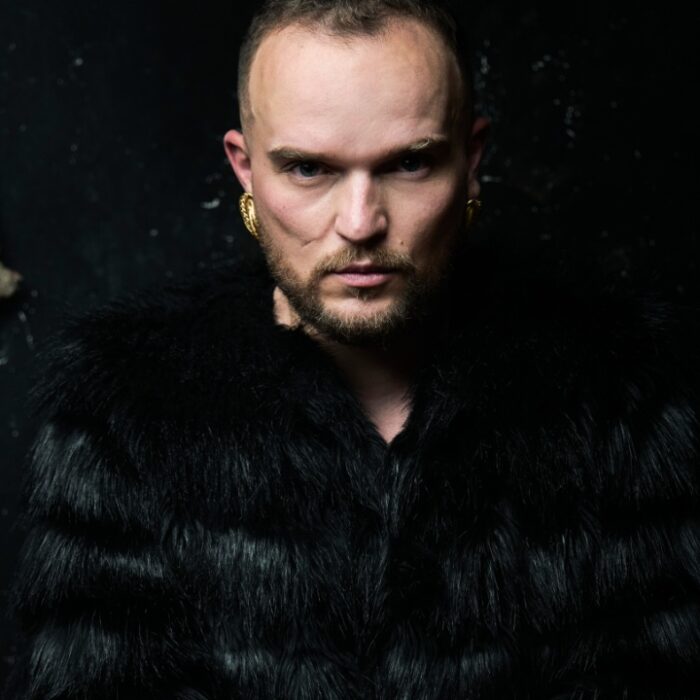
Q & A: Opera Memphis General Director Ned Canty on Equity in the Arts & 30 Days of Opera
By Logan Martell(Opera Memphis/ Ziggy Mack)
Committed to bringing opera to modern audiences in a meaningful and accessible manner, Opera Memphis is underway with a number of artistic initiatives which bring together matters of race, equity, and music.
Currently halfway through its 30 Days of Opera program, the company has taken its passion to local venues and markets throughout the city of Memphis, sharing them with residents and driving the conversation between music and social justice. OperaWire had the opportunity to speak with Ned Canty, General Director of Opera Memphis to learn more about the company’s experiences with these initiatives, and the organization’s aspirations going forward.
OW: Tell us a little about how some of these initiatives like 30 Days of Opera came about, what were some of the driving forces behind their inceptions?
NC: In 2011, after several big hits from the Great Recession, Opera Memphis was still in fairly rough shape. For many years, our subscriber retention rate was extremely high, meaning that not enough was done to find new audiences and patrons.
When the Great Recession hit, so many of our patrons and supporting the arts was one of the first things to go, and once the habit was broken, it proved hard to get them back. We needed something that would redefine what the company meant to the city, a combination of guerrilla marketing, rebranding, and civic practice. The 30 Days program allowed us to do all three while following some of the principles of “The Lean Start-Up”, especially the idea of Minimum Viable Product.
OW: What are some of the ways you branch away from traditional standards in presenting opera to the community in Memphis?
NC: I believe in an early planning meeting we compared our approach to George Costanza on Seinfeld deciding the he would do the opposite of everything he had done previously. 30 Days had no sets, no costumes, no opera house. The singers were in casual clothes, next to you, rather than rows and rows away, behind a proscenium in an opera house.
At a more basic level, instead of spending months of effort to lure an audience into the theater for a two-hour experience, we went out into the world to give people who though they didn’t like opera a taste of that they were missing, but that taste might only be five or 10 minutes.
As in many cities, opera was, sometimes still is, consider very serious, refined, high-falutin’. With 30 Days we reveled, still do in the silly and the random, like performing Rossini’s Cat Duet at the dog park, or singing while riding Segway scooters on Trolley Night.
OW: 30 Days of Opera is now in its seventh year. How has this program changed or grown since it first started, in regards to artistic approach and audience involvement?
NC: The main shift has been one of emphasis. In the early years, the main emphasis was on marketing–getting people to buy a ticket to a full-length opera. While we were very successful with this, the true value of the program emerged over several years. Meaning, if someone is at one of our 30 Days shows, and that is the only opera they see in a whole year, isn’t that better than no opera? If those 10 or 20 minutes are sung with love, with devotion, with humility, then they are a good thing in and of themselves, even if they don’t lead directly to ticket sales. After all, what is the value of an opera company to a city for the person who does not attend? How do we make their city a better place? With programs like 30 Days.
The second shift would be a move towards producing short works as a part of the month. This started as a part of The McCleave Project. Since the goal was to start a conversation about opera and race, we needed to ensure that the conversation had at least one experience in common for everyone. In other words, we needed to first invite people to watch a short opera, and then use that as the basis for a discussion. Otherwise we could get swamped by a discussion of what people THINK opera is.
OW: What goes into the decisions behind things like programming and repertoire choices?
NC: These discussions begin months before the program starts, as we look at which singers will be taking part and begin discussing where we will be singing. There are several venues, and certain songs that have now become tradition, like finishing our Levitt Shell Concert with Bohemian Rhapsody. Others we add in response to new partners or venues. For instance, this year we will perform at an inaugural Latin Festival, so we are adding several songs in Spanish, as well as Lee Hoiby’s setting of ‘The New Colossus.’
OW: What are some of the highlight performances that people can look forward to over the month of September?
NC: Our concert at The Levitt Shell is always a highlight, in part because of how many families turn up. When the weather cooperates, there is nowhere better to be on any given Memphis night.
Our “Live Lunch” at the studios of WKNO is always fun as well, with food trucks and a live broadcast. The energy of Trolley Night always makes for a wonderful set of performances.
Our “wheel of opera” approach to Pride Fest and to the Cooper Young Fest leads to hundreds of wonderful interactions each year, and this year we will also have a float in the Pride Parade, which we are very excited about.
OW: Tell us about your new partnership with Latino Memphis, what are some of the challenges and rewards of reaching out to a new audience?
NC: The biggest challenge with any sort of effort to reach out is to avoid the colonial impulse. The first step always has to be to listen, to try to learn what any given community wants or needs, rather than thinking we can show up with something WE think his great and expect others to simply agree and thank us. Given the fraught political situation around many of the Spanish speaking communities in Memphis, our goal has been to learn more about how we can help, and how we can connect. This led to our performance last year as a part of the art installation “Sin Barreras,” where we sang a full set from inside a chain link holding pen. The music ranged from Spanish art song to opera, ending with a sing-along to “This Land Is Your Land.”
There is, naturally, the additional challenge of language–we only recently hired our first native Spanish speaker. But opera also has an advantage over other art forms–our audience is used to reading translations of what is being sung, meaning we can program Spanish works as freely as Italian or German.
The reward for any type of engagement effort or civic practice is, and must be, the satisfaction of knowing that we are doing our job better. We don’t pay taxes because we are meant to be a public good. That means we need to constantly be exploring new ways of serving every person in our city and region.”
OW: For those who are really inspired, what are some of the educational and performance opportunities offered by Opera Memphis or its affiliated programs?
NC: Our fully produced operas are, naturally, the pinnacle operatic experience each season. We work overtime to ensure that these are accessible to all, with multiple paths to seeing the show, despite income.
We also have free programs throughout the year, including free family days at The Dixon in October and at our HQ in May. There is a thriving volunteer program that is vital to our success, and a growing young professionals’ group, The Camerata. In the summer we have a conservatory for young singers, many of whom also volunteer or intern for us throughout the year. Each April we hold auditions for local singers interested in being a part of our chorus or singing smaller roles.



